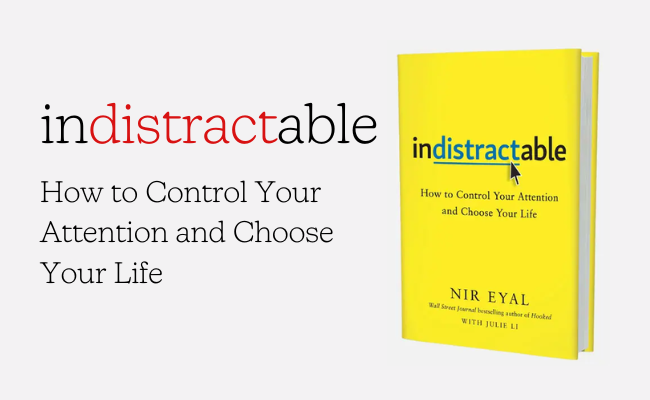Is there an effective way of multitasking?
“We answer an email, and then we go back to the project, and then another email notification pops in, and then you go back to the project, then you have to see where you were. All that uses a lot of time, and makes for very ineffective multitasking.”
– Ana Melikian
The idea of multitasking has been long-debated and often rebuked as an impossibility at worst and ineffective at best. Is that true, or is there an effective way of multitasking?
I discuss:
- How Nir Eyal and his book Indistractable inspired this topic
- An experiential exercise that demonstrates the inefficiency of multitasking
- The possibility of effective multitasking
How Nir Eyal and his book Indistractable inspired this topic

I recently had the pleasure of interviewing Nir Eyal about his book, Indistractable, and it got me thinking about multitasking and the stigmas around it.
There was a bit in our conversation about multitasking, but we didn’t have the time to dive into it, so I’m doing so now. Nir also has a short article touching on this topic.
Multitasking is villainized in the productivity world so much so that I even have an exercise I do with my clients to show its inefficiency. I wish to share that with you today.
An experiential exercise that demonstrates the inefficiency of multitasking

This exercise starts with a clock—you can use your phone’s clock app if needed, it just needs to be something you can track seconds with.
Next, gather a piece of paper and a writing utensil and write six names across the top of the page. After you’ve written the six names down, set your stopwatch and copy the names below the original line in legible writing.
Typically, one can do this in 30 seconds or less.
Set your stopwatch again. You’re going to copy the same names again, but this time, write the first letter of the first name, followed by the first letter of the second name, and so on. Follow the same pattern until all names are spelled out in their entirety.
Typically, this will take almost double the time to complete, and the handwriting quality suffers. Switching from one task to the next takes time—taking into account the different name lengths, the correct letters, etc., adds mental work.
The same issues crop up when we’re multitasking at work. Checking our email, jumping back into a project, checking our email again—it becomes scattered, and the outcome suffers.
The possibility of effective multitasking

In Nir’s book, he peels back the layers of multitasking to explore the possibility of effective multitasking and uncover what lies at the core of trying to do multiple tasks at once.
Unlike the exercise we just did, there are times when doing two things at once has proven to be more effective. For instance, I love traveling, but I don’t like packing. One solution that I found was to put my Spotify playlist on, and while I'm listening to this music, I’m able to go into autopilot. I can pack and feel more relaxed.
Maybe you’ve experienced something similar when listening to music or a podcast while doing chores or cooking.
This is called cross-modal attention—which allows our brain to place a certain mental process on autopilot while we think about other things.
If you’re into mindfulness, you can argue “Oh, you could use those moments to create a mindfulness experience and to practice mindfulness.” And it's absolutely true, but sometimes it’s good to do this, and we can be effective by letting ourselves slip into autopilot in one section of our brain—enjoying the music—while our main focus falls on whatever task we’re working on.
Another concept from Indistractable is the idea of a bind—binding something you want to do with something you have to do, such as only allowing yourself to listen to a certain podcast when doing laundry.
At its base nature, that is a form of effective multitasking.
Have you leveraged cross-modal attention before? Have you found this type of multitasking effective?
Be sure to check out the full episode to do the exercise alongside me!








